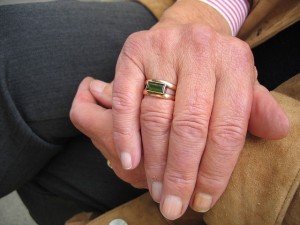 It is never easy for anyone to hear that they have been diagnosed with diabetes because this is a disease that does not have a cure (not yet, anway). This is a disease that has to be thought of and cared for on a daily basis. Therefore, those who have received this diagnosis must make immediate changes to their lifestyles in order to maintain proper health.
It is never easy for anyone to hear that they have been diagnosed with diabetes because this is a disease that does not have a cure (not yet, anway). This is a disease that has to be thought of and cared for on a daily basis. Therefore, those who have received this diagnosis must make immediate changes to their lifestyles in order to maintain proper health.
To achieve this goal, the first thing they have to learn how to do is to monitor and maintain control of their blood sugar levels.
Patients who do not keep their blood sugar under control are at risk for developing health problems that are serious. These health problems could include blindness, kidney failure, and nerve damage.
How Can I Help Care For My Family Member With Diabetes?
- The first step in the process is to learn about the disease. The more educated you are, the more you are going to be able to help your loved one. This is especially important when your loved one moves in with you. As you go through the learning process, encourage your relative to educate themselves with you in case they have forgotten or may not know some of this information.
- Be as sympathetic as you possibly can with your relative about their disease.Some patients become scared when they learn they have been diagnosed with diabetes, so they may need as much support from you as possible. Your relative may also feel frustrated with the lifestyle changes they may have to endure, including moving in with you as a result of their diagnosis. Explain to your relative that you have an understanding of their feelings and what they are going through. However, it is important that you do not allow your relative to use these feelings or frustrations as an excuse for not properly caring for their diabetic needs.
How Can I Help My Relative With Their Lifestyle Changes?
- In as many mealtimes as possible, consume the same foods as your relative so they don’t feel alone.
- Try not to buy foods that they are not allowed to eat. Those who have been diagnosed with diabetes are generally supposed to follow the same healthy food guidelines as all others: consume foods low in cholesterol, fat, added sugar, and salt. Be sure to choose a wide variety of vegetables, fruits, fish, whole grains, and lean meats.
- Encourage your relative to exercise as much as possible. You can do so by leading through example. This can be bicycling, dancing, jogging, swimming, and walking. Your relative can also ask their physician about which exercises would be best for them.
Is There Anything Else I should Do?
Recognizing the signs of problems is important. When you know what the symptoms of high blood sugar and low blood sugar, you can understand why your relative may have a bad temper or why they’re cranky. Instead of arguing with them, encourage your loved one to check their blood sugar and see if the problem needs correcting.
High blood sugar (hyperglycemia)
Hyperglycemia often occurs when a person with diabetes has consumed too much food, they are sick, their body has too little insulin, or they are experiencing a lot of stress. Symptoms include:
- Blurred vision
- Extreme fatigue
- Frequently urinating
- Unquenched thirst
Low blood sugar (hypoglycemia)
This typically occurs when a person with diabetes has not eaten enough, their body has too much insulin, or they’ve exercised too much. Symptoms include:
- Becoming unconscious
- Chronic Fatigue
- Chronic yawning
- Feeling like you’re about to pass out
- Trouble speaking, brain fog
- Paleness
- Poor muscle coordination
- Seizures
- Sweats
- Twitching
Remain Patient With Your Relative
It takes time to learn how to live with diabetes, so you have to remain patient with your relative as they go through this process.
There will be good days and bad days experienced by your loved one, as well as by you.
Remember that there will be times of stress and these will be the hardest days.
When patients who have diabetes are experiencing stress, this is when their diabetes is the most difficult to control. This is when you can help them keep things in perspective, and help your relative find their path again.
Give them gentle reminders about eating healthy and exercising.
